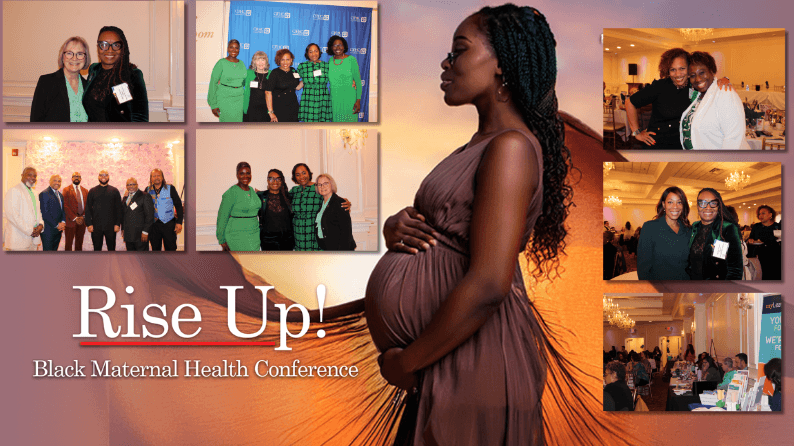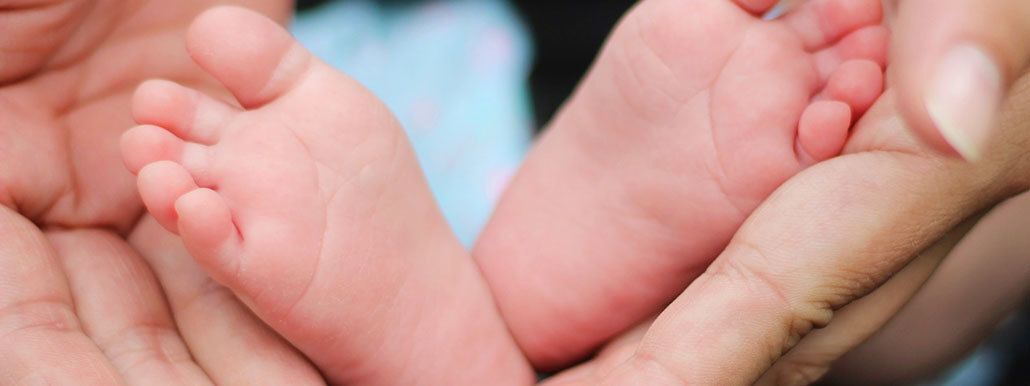
2025 Black Maternal Health Conference Recap
On April 10, 2025, a powerful movement unfolded at the Central Jersey Family Health Consortium’s third annual Black Maternal Health Conference, themed "Rise Up! Advancing Black Maternal Health Equity in New Jersey." Presented by the Consortium’s Healthy Women, Healthy Families program, the conference was a rallying call for change, a moment of healing, and a platform for voices that demand to be heard.
Each year, this conference is dedicated to addressing the Black maternal health crisis—a crisis that sees Black birthing people in New Jersey facing significantly higher rates of maternal morbidity and mortality compared to their white counterparts. In its third year, the event carried forward the momentum of past themes ("Choose to Improve" in 2023 and "Turning Up the Volume by Partnering with a Purpose" in 2024), this time calling attendees to Rise Up for justice, equity, and systemic change.
A Transformative Keynote
The day began with a stirring keynote address by Shawnee Benton Gibson, CEO of the Spirit of a Woman Leadership Development Institute and Co-Founder of The ARIAH Foundation. A passionate advocate for reproductive justice, Shawnee shared deeply personal insights, including her journey of activism following the preventable loss of her daughter to maternal mortality—an experience captured in the Emmy-nominated documentary Aftershock. Her keynote wove together spirituality, social justice, and profound calls to action.
Two Dynamic Panels: Voices from Every Angle
The conference featured two pivotal panel discussions:
- The Maternal Health Panel, moderated by Lisa Asare (President & CEO of the NJ Maternal and Infant Health Innovation Authority), spotlighted systemic barriers and opportunities to advance maternal health outcomes. Panelists included experts like Ellen Maughan (NJ Breastfeeding Strategic Plan Coordinator), MarieKarl Vilceus-Talty (President & CEO, Partnership for Maternal and Child Health), Shakira Williams-Linzey (March of Dimes), and Brandie Wooding (Universal Home Visiting Program). Their conversations tackled inequities in healthcare delivery, community-based interventions, and the critical importance of centering Black voices in program design and policy.
- The Paternal Health Panel brought a much-needed, often-overlooked perspective: the father's voice. Moderated by Peter Bullock, founder of Hey Black Dad, the panel featured fathers and community leaders like Rahiem Allen, Rev. Darrell Armstrong, Bill Davis, James Graham, and Keith Jones II. They spoke candidly about the role of Black fathers in birth and parenting, the systemic challenges they face, and the transformative potential of engaging fathers as essential advocates for maternal and child health.
The Energy in the Room: Hope, Empowerment, and Action
Throughout the day, attendees shared sentiments of empowerment and connection. One participant reflected,
"I felt seen, I felt empowered, and I felt that the conversations were important and relevant to making this better!"
Another shared,
"I appreciated hearing the father's perspective — it was definitely needed. There was so much I didn’t know."
And perhaps the most telling summary came from a participant who said,
"This was a lifechanging event. The energy in the room left me feeling hopeful and ready to continue my work."
Green attire filled the venue, symbolizing hope, strength, growth, and renewal. Attendees also honored the lives lost to preventable maternal mortality by embracing the Forget-Me-Not flower, a moving symbol of remembrance and advocacy.
Looking Ahead: Building on the Momentum
The Black Maternal Health Conference continues to grow each year as a vital force for change, bringing together healthcare providers, community advocates, policymakers, and families to ignite action and drive lasting improvements.
If you missed this year's conference or want to stay connected to future opportunities, you can sign up for updates at CJFHC.org/Get-Connected.
Together, we rise. Together, we will create a future where every mother, every family, and every community thrives.


